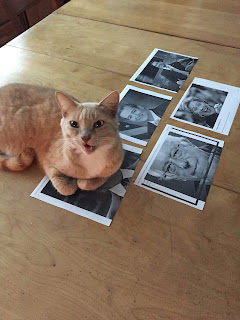The Dead Lands
The Dead Lands, released on DVD, is an instant classic
that can be compared to Akira Kurosawa’s “Seven Samurai”. It is also a challenging film for its portrayal of violence and the warrior code. Maori warriors and
samurai venerate their ancestors, believe in honorable death through combat and
have sophisticated and deep beliefs. This action packed film is both extremely violent
and deeply mystical. The plot points keep changing and the dialogue embraces a
Shakespearean majesty that elevates the ensuring story and its inevitable
bloodbath.
Set in “pre-contact” times, before Europeans arrived, the
film is spoken in Maori with English subtitles. Every detail looks authentic
from the elaborate vocabulary, the style of dress and weaponry to the
cosmological beliefs Maori lived by. The filmmakers are the first to admit they
created an imagined world, as we do not know how Maori looked or acted in the
16th century. Although early European artists clearly articulated
certain aspects of Maori, including their hand to hand combat weapons.
Maori
close combat tools, war clubs drawn by John Frederick Miller, 1769-1770.
John Frederick Miller drew various types of Maori war clubs
after Captain Cook’s voyage to New Zealand in 1769-1770, made from wood, stone
and pounamu (greenstone). Most violent encounters involved close quarter fighting
with such weapons. Maori had no access to metals before the coming of
Europeans. Maori had a highly evolved form of martial arts developed in
isolation. Such fighting style was similar in concept to Bram Frank’s edged
weapon techniques and Filipino blade fighting that demonstrate the universality
of proven methods. The warriors who triumph went on to teach another generation
of their successful ways. It’s a fighting style that works. There are no fake
martial arts schools. You either can fight effectively or you die in battle.
The previews make the film look extremely violent. But the
resulting shape of the film is both mythical and pragmatic, like Maori
cosmology, the film embraces the sublime and magical yet appears very authentic
and humorous at times. It helps if you have slept on a marae, know a little
about Maori culture: utu, tapu, maketu, who a Tohunga is and what a Maori
burial ground means, but the film stands on its own just like a sophisticated
Samurai film by Kurosawa.
It is a must see film for any visitor to New Zealand, student
of Maori history, martial artist or edge weapon enthusiast, or plain admirer of
Samurai films.
He is about to release “The Jaded Kiwi” on March 1, 2016 as a
paperback and e-book, everywhere.































